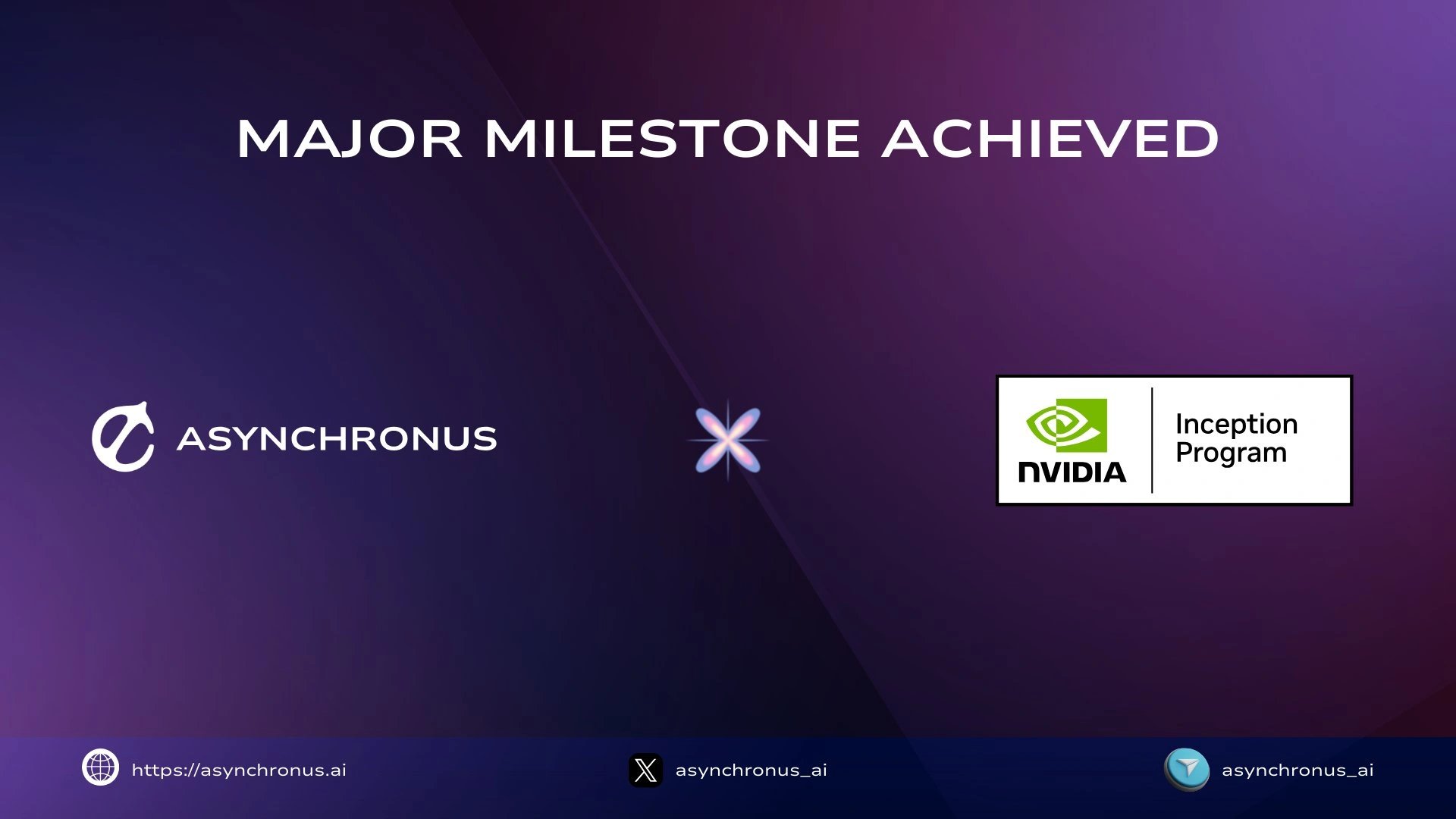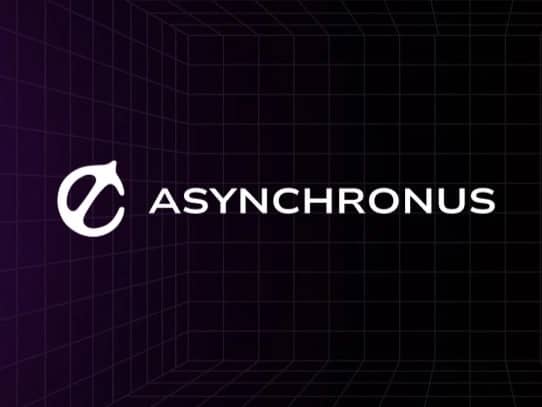Subscribe to wiki
Share wiki
Bookmark
Asynchronus
The Agent Tokenization Platform (ATP):Build autonomous agents with the Agent Development Kit (ADK)
0%
Asynchronus
Asynchronus is an infrastructure layer designed for the agentic Web3 economy, functioning as a decentralized, AI-native multi-agent system. Its primary purpose is to autonomously execute complex Web3 workflows by translating human intent into verifiable on-chain actions. [1]

Overview
Asynchronus aims to address challenges within the Web3 landscape, such as fragmented liquidity, diverse protocols, and the need for constant manual intervention across multiple chains. It proposes a paradigm shift towards "agentic infrastructure," where users can delegate complex logic rather than just liquidity. The system is built upon principles of multi-agent coordination, on-chain intent resolution, and high-resolution market intelligence to enable autonomous and intelligent decision-making within decentralized ecosystems. [1] [2] The project seeks to bridge the gap between high-level human goals and the specific actions required at the protocol level on the blockchain, facilitating a more accessible and autonomous interaction with Web3. [1]
The vision for Asynchronus involves a future where execution is autonomous across different chains and protocols, decisions are intelligent through the use of AI agents leveraging data and models, and interfaces are conversational, simplifying interaction with Web3 complexities. By providing a framework for composable, verifiable, and sovereign agents, Asynchronus intends to empower users and developers, architecting what it describes as the economic and operational substrate for autonomous coordination in decentralized environments. [2]
2025 Road Map & Vision
Asynchronus is developing infrastructure for agent-driven digital economies, focusing on phased development to support decentralized, autonomous systems. As of late May 2025, the project is finalizing its minimum viable product (MVP), with ongoing work on staking, bridging, token discovery, and LangChain-based developer tools. Closed beta onboarding with DeFi partners, infrastructure stress-testing, and community preparation are also underway.
The roadmap outlines three major development phases:
June 2025 introduces the Shell MVP with core functionalities, the initial release of the Graph framework, onboarding of early partners, and the launch of agent discovery and memory modules.
July 2025 focuses on expanding capabilities, including integration with the Agent Commerce Protocol (ACP), an open developer sandbox, public open-source releases, and initial support for multi-modal agents.
August 2026 marks a shift toward full autonomy and governance, with the launch of the Asynchronus DAO, support for agent-to-agent transactions, real-world integrations (e.g., IoT and robotics), and expansion into new domains such as climate analysis and real estate automation. [8]
Architecture
The core architecture of Asynchronus is underpinned by several key concepts. It is designed to be decentralized, meaning the system operates as a network of autonomous agents without control by a single entity, aiming for resilience and censorship resistance. [3] The system is AI-native, integrating artificial intelligence as a fundamental component for agents to perceive, reason, learn, and act within the Web3 environment. [3]
Asynchronus utilizes Multi-Agent Systems (MAS), where multiple specialized agents collaborate to solve complex problems. Each agent may specialize in a specific domain, such as analysis, bridging, or security, working together towards broader objectives. [3] A central concept is Intent Resolution, which involves translating user goals, expressed naturally, into a series of verifiable and executable actions across various Web3 protocols. [3]
Products
Asynchronus offers tools for both end-users and developers to interact with its agentic infrastructure.
- Shell: Described as the Autonomous Conversational Agent, Shell provides a conversational interface allowing users to interact with Web3 using natural language. [4] Users can explore Shell and meet the various Asynchronus Agents through dedicated interfaces. [5] [6]
- Graph: This is the Agent Development Framework designed for developers. Graph allows developers to build and deploy their own intelligent agents on the Asynchronus platform. [4] Information on building with Graph is available through the Asynchronus website. [7]
Features
Key features of the Asynchronus system include:
- Multi-Agent Coordination: Enables diverse AI agents to communicate, plan, and act collaboratively to achieve complex goals. [1]
- On-Chain Intent Resolution: Translates high-level human objectives into verifiable and executable actions directly on the blockchain. [1]
- High-Resolution Market Intelligence: Provides agents with real-time data necessary for informed decision-making within the Web3 environment. [1]
- Autonomous Execution: Allows complex, multi-step tasks across different chains and protocols to run without constant manual oversight. [2]
- Intelligent Decisions: Utilizes AI-powered agents that leverage datasets and models for research, analysis, prediction, and optimization. [2]
- Conversational Interfaces: Simplifies interaction with Web3 complexities through natural language interfaces. [2]
Use Cases
Asynchronus is designed to support a variety of complex Web3 workflows through its autonomous agent system. Potential use cases include:
- Automating user strategies within the Web3 space. [1]
- Conducting deep DeFi research. [1]
- Executing sophisticated cross-chain investment strategies. [1]
- Optimizing user positions across different protocols or chains. [1]
Partnerships
Asynchronus has joined the NVIDIA Inception Program, a global initiative that supports startups developing advanced AI technologies. Through this collaboration, Asynchronus gains access to NVIDIA’s technical resources, specialist support, and a broader network of startups and industry partners.
Participation in the program is intended to support Asynchronus’s development of decentralized finance AI (DeFAI) tools aimed at enhancing user experience and improving Web3 onboarding processes. The partnership aligns with Asynchronus’s focus on leveraging AI to build more efficient and accessible decentralized systems. [9]

Asynchronus has formed a strategic collaboration with Router Protocol to enable cross-chain autonomous execution for AI-native agents. This integration allows Asynchronus agents to operate across multiple Layer 1 and Layer 2 blockchains, facilitating real-time asset movement, route optimization, and liquidity access without reliance on centralized bridging solutions.
Router Protocol provides the cross-chain infrastructure that supports secure and scalable communication across over 50 blockchains. Through this partnership, Asynchronus aims to enhance the operational autonomy of its agents and improve decentralized finance automation.
Additionally, Router Protocol has been included in Asynchronus’s Partner Incentive Program, receiving a portion of the 2% allocation of ASYNC tokens reserved for strategic partners and their communities. [10]
See something wrong?
The Agent Tokenization Platform (ATP):Build autonomous agents with the Agent Development Kit (ADK)
